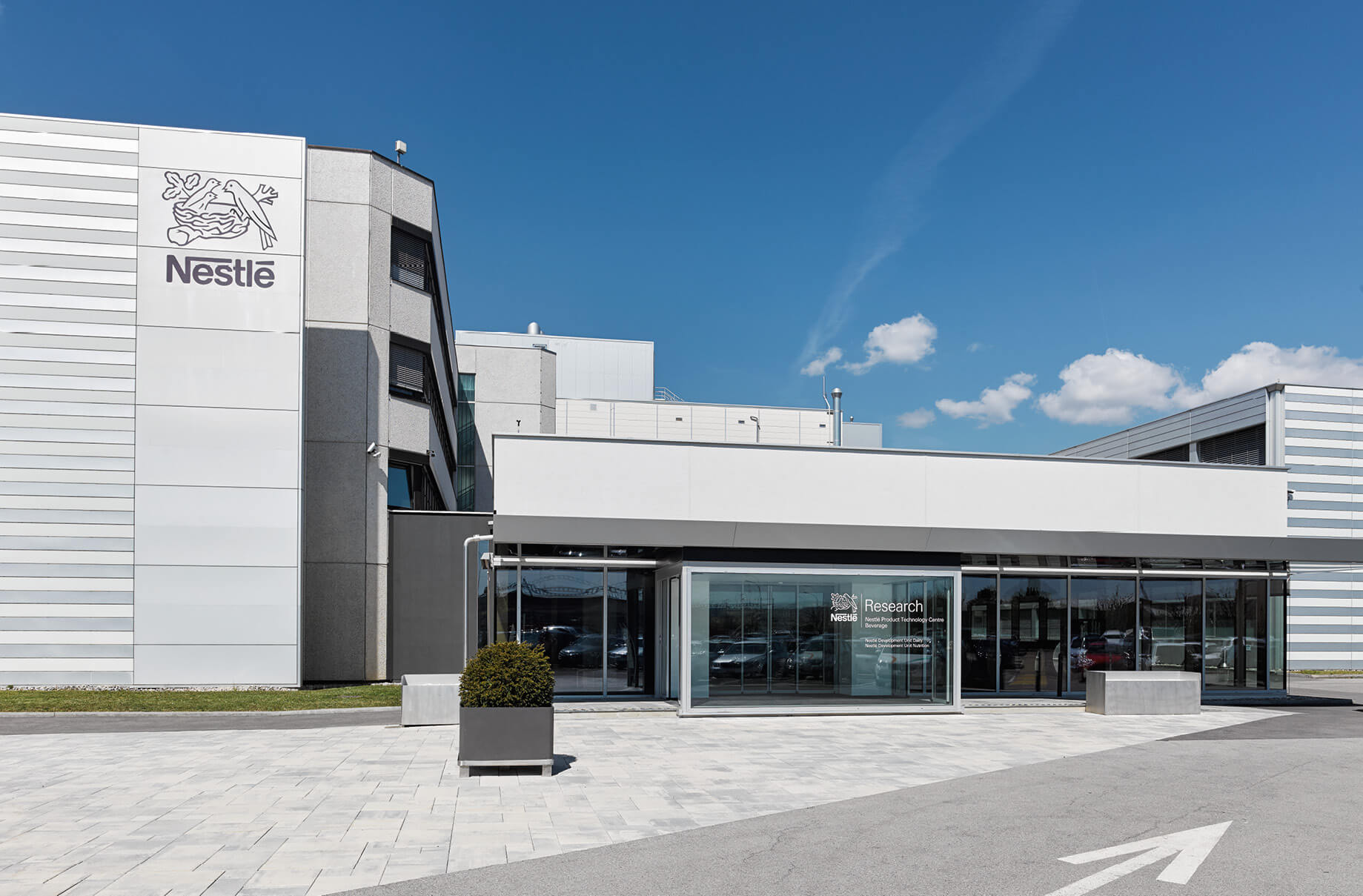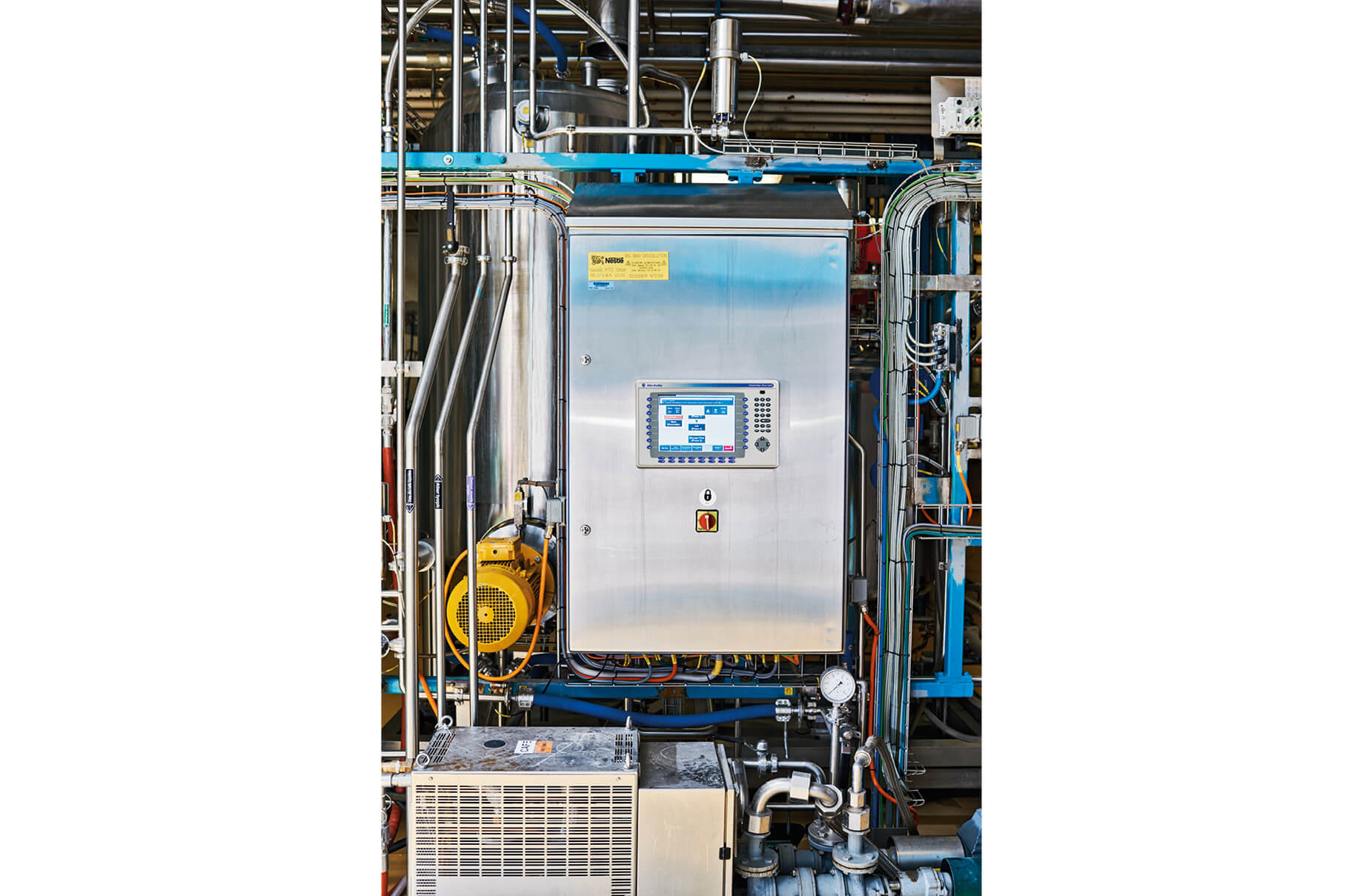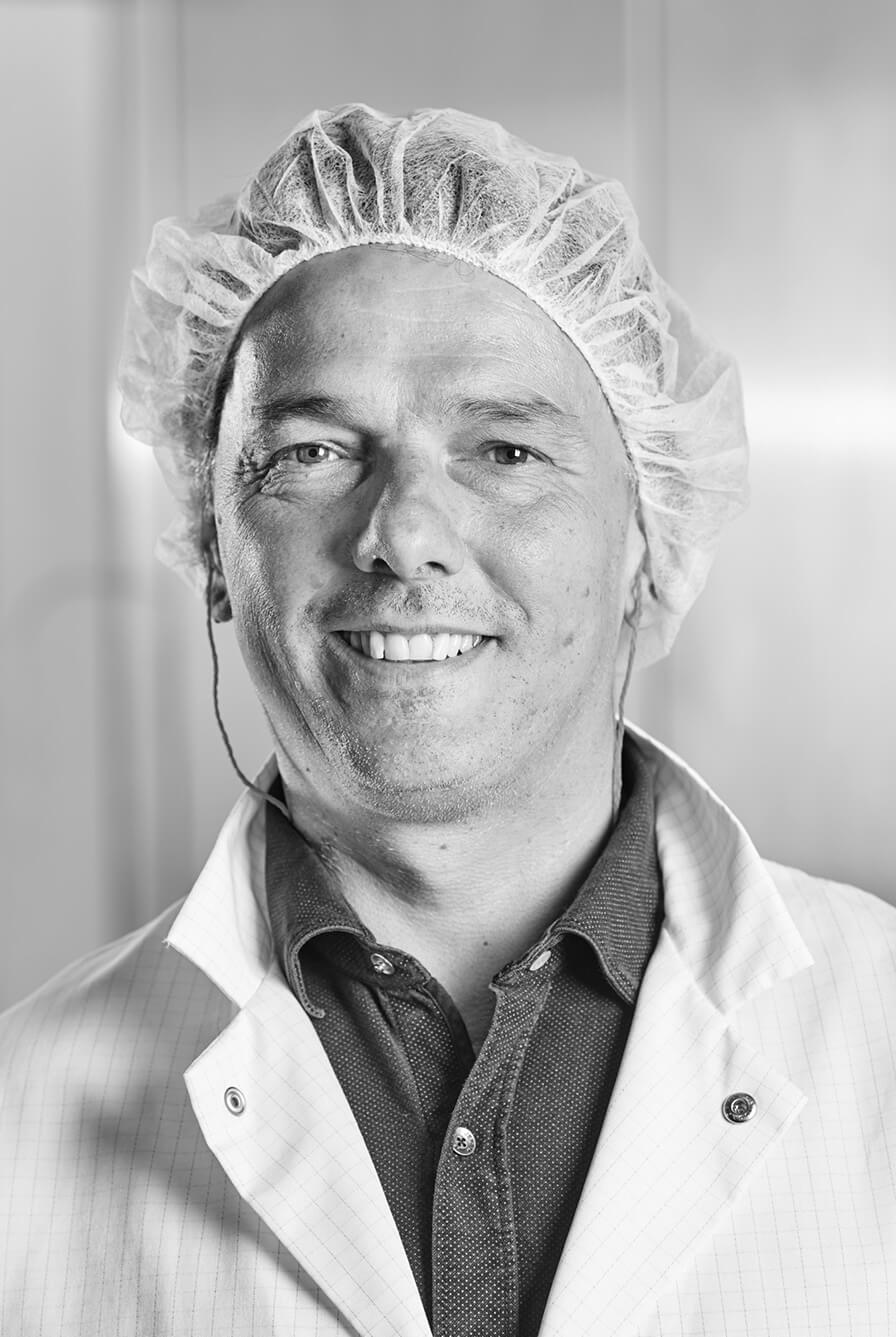Text Manuel Fischer and Joscha Duhme ––– Photography
The high-pressure cleaner is our most important tool,” says Philippe Demarque, inspecting the stainless steel roof of a terminal box with a wipe of his finger. Cleanliness is crucial for his work. Cutting corners when it comes to hygiene is out of the question for the production manager at the Nestlé Product Technology Centre (PTC) in Orbe, Switzerland. “Strict hygiene standards are already in force in the food industry. We at Nestlé add two more sets of requirements.”
Just how this can look is evidenced not only by the pristine production operations at the research and development centre for coffee, chocolate drinks and malt beverages – the hygiene specifications developed at the centre also show that more is better. How do electrical cables need to be secured? What precautions need to be taken for welding? And how cleanable do the surfaces of plant and machinery need to be? Clear precautions are taken for all open processes in food production at Nestlé. The requirements are only less strict in areas where liquids circulate in closed pipes and containers. “We cannot and will not risk deposits such as dust, dirt and water accumulating in our production areas,” explains Demarque. “This is because they encourage bacterial growth and lead in the worst case to impurities and mould formation.” Daily cleaning is therefore mandatory at Nestlé, even for complex installations such as pipework for water or compressed air – and these really are present all over the PTC, Nestlé's coffee research centre.
Coffee as research subject
Development centre. The Nestlé Product Technology Centre (PTC) in Orbe, Switzerland, is the Group-wide research and development centre for coffee, chocolate drinks and malt beverages. Nestlé employs around 600 chemists, engineers and other experts at the PTC. Accessing the coffee research centre is like being invited to a maze. Countless lines, machines and control panels have been installed in the relatively small PTC production hall. You would think you had got lost deep inside a spaceship. In this PTC test factory, food experts once developed instant coffee. In the last few decades, they fine-tuned Nespresso capsules before these were produced on an industrial scale for the first time. Similarly, the team has been optimising the freeze-drying process for roasted coffee in these halls over decades. Without these continuous improvement efforts, the indispensable global breakfast companion Nescafé would never have become a multi-billion-dollar brand. Successful product innovations are virtually impossible to implement without a company showing a willingness to also invest in new process technologies. This is where Nestlé relies on the technical expertise of numerous partners. Rittal has been one of these since more than 20 years.
Efficient cleaning
To ensure the cleaning in place is nevertheless as efficient as possible, there is a specified cleaning procedure. First, cleaning fluid mixed with sodium hydroxide is used to remove the dirt quickly and reliably. This is followed by oxygen-enriched water. Only then is rinsing performed several times with hot water. “The facilities are always cleaned from top to bottom,” explains Demarque. “This is because the flow of water and foam should take everything with it.”
However, curved surfaces, blind spots and exposed threads of screw heads can hinder this effect. To ensure this doesn’t happen, Nestlé uses Hygienic Design – in other words, hygienically designed machines, systems, housings and enclosures,” says Demarque. A large proportion of those in the PTC come from long-standing system partner Rittal.
“Nestlé is a very discerning customer that formulates a highly detailed list of requirements for its project suppliers,” says Julien Gaillard, Rittal Branch Manager in French-speaking Switzerland. “It’s therefore up to us to propose a solution tailored to the customer’s requirements.” To achieve this aim, Rittal makes substantial investments – not just in consulting but also in product development.
Hygienic Design in every detail
From gap-free silicone seals and sloping roofs to internal door hinges, Hygienic Design solutions from Rittal are planned down to the smallest detail. “Our housings and enclosures should ultimately not only protect electronic components against dust, water and other external influences but should also be easy to clean,” explains Gaillard. Large transparent covers are therefore fitted at the PTC in Orbe to protect buttons and displays. Screw fasteners are mounted so that they cannot get lost.
Smooth stainless steel surfaces reduce dead spaces and thus the use of detergents and disinfectants. Housings are mounted to the wall with round spacers so that the rear can also be accessed during cleaning. “These small details can have a big impact,” says Gaillard. “And they are standard for our HD solutions.”
This is a standard that also meets the strict national and international hygiene regulations in the food industry. “Whether it’s ISO 22000, Hazard Analysis and Critical Control Points or the Codex Alimentarius, our customers don’t need to worry whether they can meet the common standards,” says Gaillard . “This is because the only prerequisite is regular cleaning.”
Setting new standards
So it comes as no surprise that Nestlé not only meets the statutory hygiene regulations but surpasses them – and not just in Switzerland but throughout the world. “Even though our national companies can decide independently which technologies they invest in, we set the global standard at the Product Technology Centre,” says Demarque. The hygiene specifications developed at the centre and a catalogue on technical specifications for new acquisitions are guidelines that apply at all branches. We simply want to obtain the best and latest products the market has to offer,” says Demarque.


